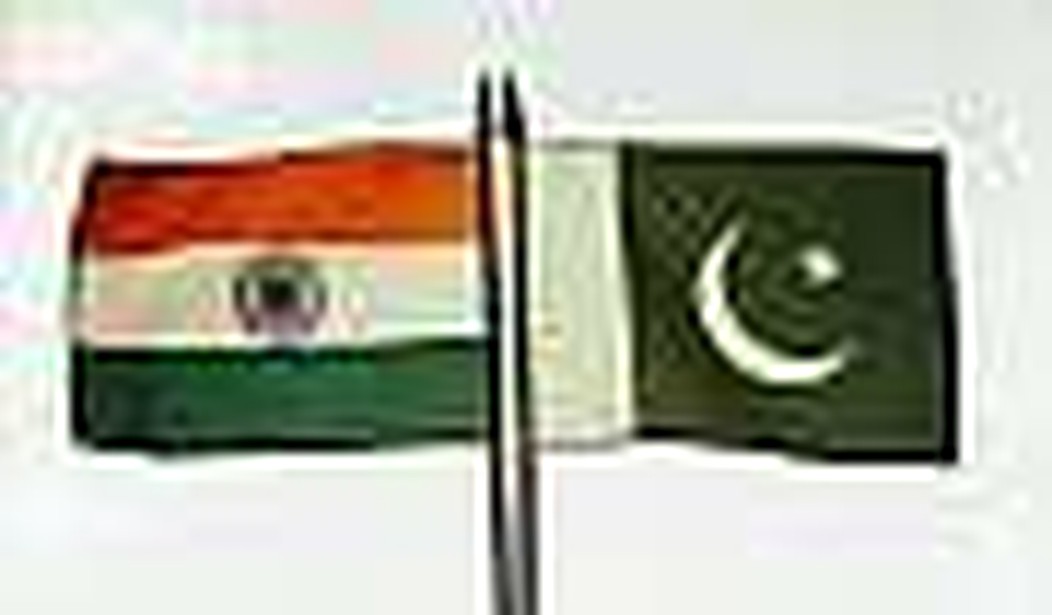In the days since the siege in Mumbai was fought to its bloody conclusion, policymakers and observers in India and elsewhere have been struggling to come to grips with this latest terrorist atrocity. Many have noted with concern the potential implications of this escalation in jihadist violence in a country that has a population of 150 million sometimes ill-treated Muslims and is already no stranger to Islamist terrorism.
Given the alleged confession by the lone surviving terrorist that his group received their training in Pakistan, and leaked reports that the terrorist controllers were located there, many also worry about the potential for this incident to inflame the Indo-Pakistani conflict and reverse recent improvements in the relationship between New Delhi and Islamabad.
It is also hard not to read into such reported Pakistani connections as yet another troubling instance of Islamabad’s unwillingness (or inability) to exert control over radicalized elements within its bureaucracy and over broad swathes of their own territory. In part, depending upon whether there turns out to have been an al-Qaeda connection or not, one might speculate whether the Mumbai attackers’ effort to seize and murder Westerners amid the carnage of running gun battles in a majority-Hindu city is an implicit admission that the indiscriminate bombings that massacred fellow Muslims in Iraq have proven counterproductive for the jihadists.
Counterterrorist analysts may conclude that we are now moving into a new phase of the war in which terrorists seek once again to take the fight against the infidel to the latter’s own turf, but where the locations targeted for mass murder have expanded from government buildings and major symbolic monuments to essentially any place that people congregate (e.g., major hotels or train stations). Too little is known at this time, however, to reach more than the most tentative of conclusions.
Beyond such lessons, however, there may lie another: the inherent danger of living in a world where more and more countries can acquire nuclear weapons. With the six-party talks to denuclearize North Korea stalled, and the unsurprising failure of the international community’s feeble and inconsistent efforts to forestall Iran from acquiring the capability to produce fissile material for bomb use, one hears it sometimes said that we can live with nuclear weapons proliferation because even idiosyncratically belligerent governments can be deterred just like the Soviet Union was during the Cold War.
On one level, the Indo-Pakistani nuclear standoff might seem to offer grounds for encouragement in this regard because despite the history of rivalry and warfare between the two countries, they have more than once stepped back from the brink of nuclear confrontation.
The Mumbai terrorist attacks and their potential to re-poison the relationship between India and Pakistan suggests that we should not be too sanguine about the stability of nuclear deterrence in a proliferated world. Even if nuclear weapons tend to encourage mutually-deterring relationships between possessor states (an assumption that, while plausible, is no more than an extrapolation from a single U.S.-Soviet case study and a mere decade of sometimes tension-filled Indo-Pakistani nuclear confrontation), there is no guarantee that any actual possessors’ relationship will be stable.
This is true particularly where bitter regional rivalries are susceptible to inflammation from other factors (e.g., cross-border terrorism and/or squabbles over contested frontiers). One would have to have a great deal of faith indeed in the conflict-moderating impact of nuclear weapons in order to be comfortable that the net result will be more stable and less dangerous than before. It is certainly possible that in such contexts the introduction of nuclear weapons would not increase stability. It would merely worsen the potential downside risks if troubled relationships deteriorate.
And deteriorate they can. The specter of a stable, nuclear-armed, Indo-Pakistani standoff being unsettled by the wildcard variable of a terrorist atrocity should remind us that future nuclear deterrent relationships in a proliferated world may be far more problematic and breakdown-prone than even the risky roller coaster ride of U.S.-Soviet confrontation. In other words, the fact that the world managed to live uneasily for a while with the Cold War nuclear dyad may tell us very little about whether it will be possible to avoid catastrophe with the advent of more and more players possessing nuclear weapons.
Among its many other effects, therefore, one should hope that the horror in Mumbai will at least encourage a greater international commitment to nuclear nonproliferation. The world can scarcely afford to allow nuclear weapons capabilities to be layered upon regional rivalries that are subject at any time to sudden crisis.









Join the conversation as a VIP Member